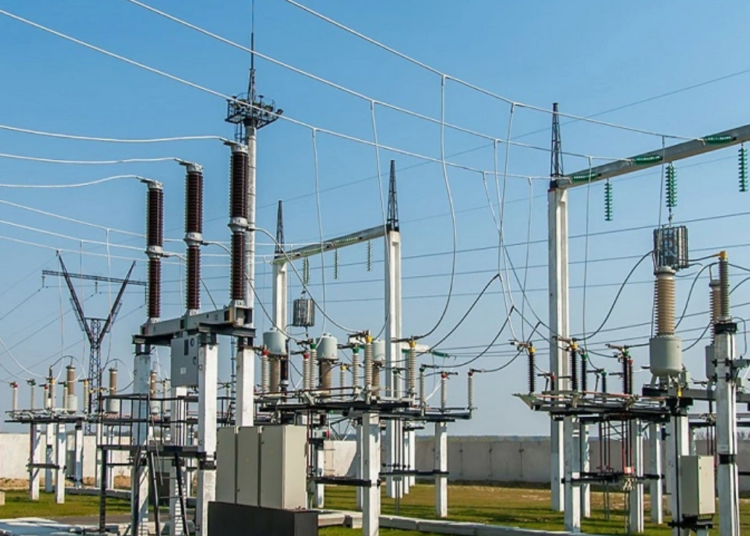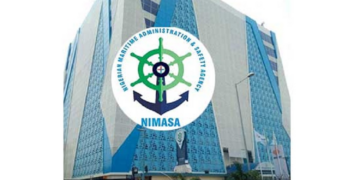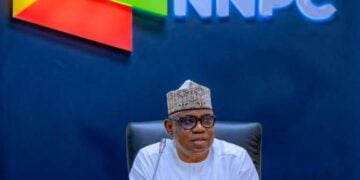The Nigerian Electricity Regulatory Commission (NERC) has officially cleared the air, dismissing widespread rumours of an increase in electricity tariffs starting January 1st, 2024.
Reports have been rife that Nigeria’s electricity distribution companies (DisCos) are planning to increase electricity tariffs nationwide with effect from January 1, 2024.
According to the reports, “All has been perfected for the new tariff to take effect from the first of January, 2024”.
Another report said “NERC held a meeting with all DisCos this morning. They are going to reset tariffs Monday morning 01st January. Consumers should expect tariffs to double.However, when contacted NERC spokesman, Dr. Usman Arabi, told LEADERSHIP that the tariff hike rumours was fake news.Also, he categorically denied any approval for such a tariff hike, emphasising that the electricity tariff order currently in effect remains unchanged.“NERC has not issued any order to DisCos concerning tariff hike; we usually have meetings with all stakeholders before any proposed increase, but we’ve not had any meeting with any DisCos concerning price increase,” Abba said BusinessDay, on Sunday afternoon.Recall that in November, 2023, the minister of Power, Adebayo Adelabu, said that President Bola Tinubu stopped the implementation of a hike in electricity tariff and insisted that subsidy be paid on power consumed nationwide.
Adelabu said then that “Tariffs should have been raised months back, but Mr President said until we are able to achieve regular and incremental power supply we can’t touch the tariff.”But for political reasons and empathy, you cannot cause additional burden on Nigerians. We just had the removal of the fuel subsidy, we are talking about the exchange rate skyrocketing, galloping inflation and so many others that bring hardship to the people.”And Mr President is trying to relieve this hardship through various forms of palliatives. So it is not politically expedient and reasonable to now implement a tariff that is more like dumping the existing tariff.We are now paying about N70 (per kilowatt-hour), and it can never be less than N130 or N140 at the exchange rate of today if we are to implement a cost reflective tariff. Because part of the reasons for an increased tariff is the price of gas, which is paid in dollars,” Adelabu stated.
Experts said the above development indicates rising electricity subsidies for Africa’s biggest economy.Adetayo Adegbemle, the executive director of PowerUp Nigeria, a power consumer advocacy group said bridging the gap between the cost-reflective tariff and the allowed tariff, has become a significant burden on government finances, raising concerns about its sustainability.
“The electricity subsidy in Nigeria has become a financial burden and is no longer sustainable. Urgent action is needed to address the disparities in subsidy distribution, prevent further strain on government finances, and redirect resources to areas where they can have a more significant impact,” Adegbemle said.NERC’s quarterly reports indicated that electricity subsidies gulped N204.59 billion in the third quarter of 2023 and N135.23 billion in Q2, which is substantially higher than the N36.02 billion in Q1 2023.
“The Multi-Year Tariff Order (MYTO) in 2022 to gradually eliminate the subsidy. However, challenges arose with the freeze on tariff reviews in July 2023, disrupting the progress made in phasing out the subsidy,” Adegbemele said.Recall that on 25 June 2023, Abuja DisCos, in a note to its customers, had informed of an increase in electricity tariff effective 1 July.
The DisCos statement suggested that the tariff increase is a response to the floating of the naira and aims to ensure that the electricity industry remains financially viable and sustainable in the face of currency challenges.The DisCos statement suggested that the tariff increase is a response to the floating of the naira and aims to ensure that the electricity industry remains financially viable and sustainable in the face of currency challenges.“Under the MYTO 2022 guidelines, the previously set exchange rate of N441/1 dollar may now be revised to approximately N750/1 dollar, impacting the tariffs associated with your electricity consumption,” Abuja DisCos said.However, on June 29 2023, Abuja DisCos informed its customers to disregard the publication saying it was yet to get approval to commence the tariff hike.“Dear Esteemed Customers, please disregard the communication circulating in the media regarding the review of electricity tariffs. Be informed that no approval for such increments has been received,” the company said in a Twitter post.The MYTO is a framework NERC uses to determine electricity tariffs in Nigeria. It provides guidelines for a structured approach to calculating and reviewing tariffs to ensure transparency, cost recovery, and sustainability in the power sector.It provides a 15-year tariff path for the Nigerian electricity industry and undergoes regular reviews to account for changes in factors such as inflation, exchange rate, gas price and generation capacity.Major reviews are conducted every five years, during which all inputs are reviewed in consultation with stakeholders, while the minor reviews are done bi-annually, which involve collecting actual data from the National Bureau of Statistics, Central Bank of Nigeria and System Operations Unit of Transmission Company of Nigeria.In 2015, the average tariff across Discos and classes of end-users was N25 kilowatt. And on September 1, 2020, the average tariff was reviewed upward to N60 per kilowatt and later went up to N64 in 2022.The foreign exchange rate used in determining the 2015 tariff was N198.97/$. The local currency devalued to N383.80/$ in 2020 and further weakened to N441.78/$ in 2022. A dollar currently sells for over N750 at the official forex market.The inflation rate used in the 2015 MYTO was 8.3 per cent, accelerated to 12 per cent in 2020 and worsened to 16.97 per cent in 2022.











